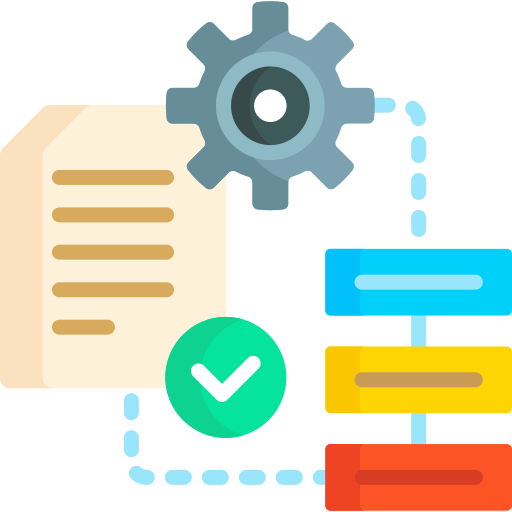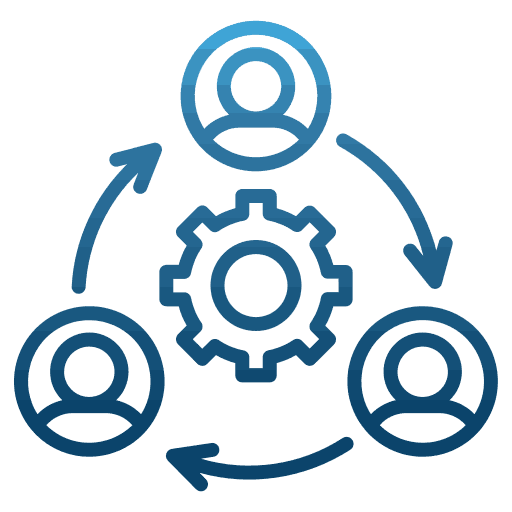Software Implementation and Integration
Software implementation is a vital phase in the lifecycle of any software application. It involves a series of steps designed to ensure that the software is correctly installed and configured to meet the specific needs of an organization. The process begins with careful planning, where the requirements of the organization are assessed and a strategy is developed for the configuration of the software. This phase is essential as it sets the groundwork for a successful implementation.
Once the planning phase is completed, the actual installation of the software takes place. This includes configuring the system settings and customizing the software to align with the workflows of the organization. During this stage, it is crucial to address any potential technical issues that may arise to ensure a smooth transition. After installation, thorough testing is conducted in order to identify and resolve any bugs or performance issues before the software goes live.
Software Implementation and Integration
1. Software Integration Across Financial Systems
- Connects various financial systems and applications used by clients.
- Ensures smooth data flow between platforms like invoicing systems, payroll software and financial reporting tools.
2. Reduction of Manual Data Entry
- Automates data transfer between systems and minimizes the need for manual data entry.
- Reduces the risk of errors associated with manual processes and improves accuracy.
3. Comprehensive Financial View
- Integration provides clients with a complete view of their financial health.
- Enhances decision-making by combining data from different platforms to offer a unified financial perspective.
4. Efficiency and Time-Saving
- Simplifies processes by automating data sharing across platforms which saves time and resources.
- Allows clients to focus on core business operations while benefiting from efficient financial management.
5. Enhanced Financial Management and Reporting
- Improves financial reporting capabilities by integrating systems for real-time and accurate financial insights.
- Supports better tracking and analysis of financial performance across multiple platforms.
6. Increased Value for Clients
- Enhances the value Accounts Junction provides by implementing and integrating software effectively.
- Allows clients to gain from improved financial management while dedicating more attention to growing their business.
These services help clients in boosting accuracy and gaining deeper insights into their financial operations.
Importance of Software Implementation and Integration
Here are the key points highlighting the importance of software implementation and integration:
1. Enhanced Efficiency:
- When software is properly implemented, it automates many repetitive tasks that would otherwise require manual effort. This leads to faster processing times for tasks like invoicing, payroll and reporting, which allows employees to focus on more strategic activities rather than getting burdened by routine paperwork.
2. Enhanced Accuracy:
- Data is sent automatically without requiring human entry thanks to integration between various software systems. This considerably lowers the likelihood of human errors, including inaccurate data entry or computation errors.
3. Customized Solutions:
- Every business has unique requirements. Effective software implementation involves customizing the software to fit these specific needs, which means that the organization can utilize the full potential of the software. This tailored approach ensures that the software supports the business processes rather than forcing the business to adapt to the software.
4. Better Data Management:
- With integration, data from various sources is combined into a single system. This centralization makes it easier for businesses to manage their data, as they can access all relevant information from one place. It also simplifies data analysis, allowing for quicker insights into financial performance.
5. Faster Implementation of Changes:
- In a rapidly changing business environment, the ability to quickly implement changes is vital. Integrated systems can be updated more efficiently, allowing businesses to adapt to new regulations, market conditions or internal changes without lengthy delays.
6. Reduced IT Complexity:
- By integrating various software solutions, organizations can reduce the complexity of their IT infrastructure. This simplification can help in lowering maintenance costs and making it easier to manage and troubleshoot issues as they come up.
7. Support for Remote Work:
- In today’s work environment, many businesses have remote workers. Integrated software solutions can facilitate remote access to necessary tools and data. This helps in ensuring that employees can work effectively from anywhere.
8. User Experience Improvement:
- A well-implemented system can significantly enhance the user experience. Insightful interfaces and synchronized navigation make it easier for users to perform their tasks, leading to higher satisfaction and productivity.
These points illustrate the numerous benefits of effective software implementation and integration by highlighting its crucial role in enhancing overall business performance.
Key Features of Software Implementation and Integration
1. Software Selection and Planning:
- Helping businesses choose the right software solutions that align with specific requirements and budgets. A thorough needs analysis guides the selection of tools that drive productivity and growth.
2. System Setup and Configuration:
- Comprehensive setup and configuration of software to ensure smooth implementation. This includes customizing settings to suit business processes and ensuring all elements work together seamlessly.
3. Data Migration and Conversion:
- Safe and accurate data migration from legacy systems to new platforms, ensuring data integrity and minimizing the risk of errors or loss during the transition.
4. System Integration:
- Connecting multiple software applications to create a unified technology ecosystem. Integration ensures seamless data flow across platforms, improving communication and automating workflows.
5. Custom Development and Integration:
- Developing custom integrations and solutions where necessary to enhance software functionality. This ensures that systems can fully support unique business processes and requirements.
6. User Training and Support:
- Providing training to ensure that teams can effectively use the new software, along with ongoing support to address any issues that arise post-implementation.
Benefits of Software Implementation and Integration
- Increased Efficiency: Automating workflows and integrating systems reduces manual tasks, allowing employees to focus on higher-value activities.
- Enhanced Scalability: Solutions designed to scale with business growth ensure that systems can adapt as needs evolve.
- Cost Optimization: Reducing redundant processes and optimizing technology use helps cut costs while maintaining high operational standards.
- Improved Data Accuracy: Integrating systems ensures that information is updated in real time across all platforms, reducing errors and improving decision-making.
- Better Security and Compliance: Modernizing software infrastructure enhances data security measures and ensures compliance with industry regulations.
Why Choose Accounts Junction ?
1. Specialized Knowledge:
- Accounts Junction has a team of experts who understand accounting software intricacies, ensuring a thorough implementation process.
2. Tailored Solutions:
- Accounts Junction provides customized software solutions that cater specifically to your business needs, enhancing operational efficiency.
3. Seamless Integration:
- Accounts Junction specializes in integrating various accounting systems with existing business processes, ensuring smooth workflows.
4. Ongoing Support:
- Accounts Junction provides continuous support and maintenance, helping businesses troubleshoot issues and optimize their software usage over time.
5. Cost-Effective Options:
- Accounts Junction focuses on delivering value, ensuring that our solutions are affordable and beneficial for businesses of all sizes.
Services Offered by Accounts Junction
1. Customized Software Solutions:
- Accounts Junction provides tailored software solutions to meet the specific needs of your business, ensuring a personalized approach to implementation.
2. System Integration:
- Accounts Junction specializes in integrating accounting software with other systems within your organization, streamlining processes and data flow.
3. Data Migration:
- We assist in transferring data from existing systems to the new software, ensuring a smooth transition without loss of important information.
4. Workflow Optimization:
- Accounts Junction helps optimize your business processes through software implementation, improving efficiency and productivity.
5. Consultation Services:
- We provide expert advice and consultation throughout the implementation process, guiding you on best practices for software integration.
Conclusion
Software implementation and integration appear as crucial services in modern business operations, represented by the offerings of Accounts Junction. These services encompass a comprehensive process of planning, installation, and customization to ensure that software solutions align perfectly with the unique needs of the organization. These services are crucial because they can boost productivity, increase accuracy, offer tailored solutions, and make improved data management possible for a range of corporate operations.
Our Bookkeeping And Writeup Process

Your Need
Search the Service You need

Enquiry
For enquiring make a call or mail us

Confirm
Get your Quote and confirm us

Stay Calm
Feel free and Relax Yourself

Effective budgeting and forecasting are crucial elements of strategic financial management, offering a structured pathway to business success.
Read MoreStarting a new business is exciting and it’s full of opportunities and challenges. At Meru Accounting, we understand the complexity involved and we provide comprehensive Business Start-Up ...
Read More
Cost control and reduction strategies are important elements of any organization's financial management structure. In the competitive marketplace, businesses must precisely manage their expe...
Read More
Due diligence services refer to a set of investigative procedures and assessments conducted by professionals, typically in accounting, finance, law, or consulting fields, to evaluate a business,...
Read More
Risk management is a crucial process employed by organizations to identify, assess, and prioritize potential risks that could hinder their objectives.
Read More
Business Process Optimization (BPO) is a strategic approach aimed at enhancing efficiency, reducing costs, and improving overall performance within organizations.
Read More
Financial restructuring is a strategic process that involves reorganizing a company’s financial framework to improve its stability and performance.
Read More
Although launching a business is an exciting endeavour, there are risks and difficulties associated with it. Effective financial management is essential to the success of every start-up, and it ...
Read More
Performance and improvement consulting is pivotal for businesses seeking to optimize operations and achieve sustainable growth.
Read More
